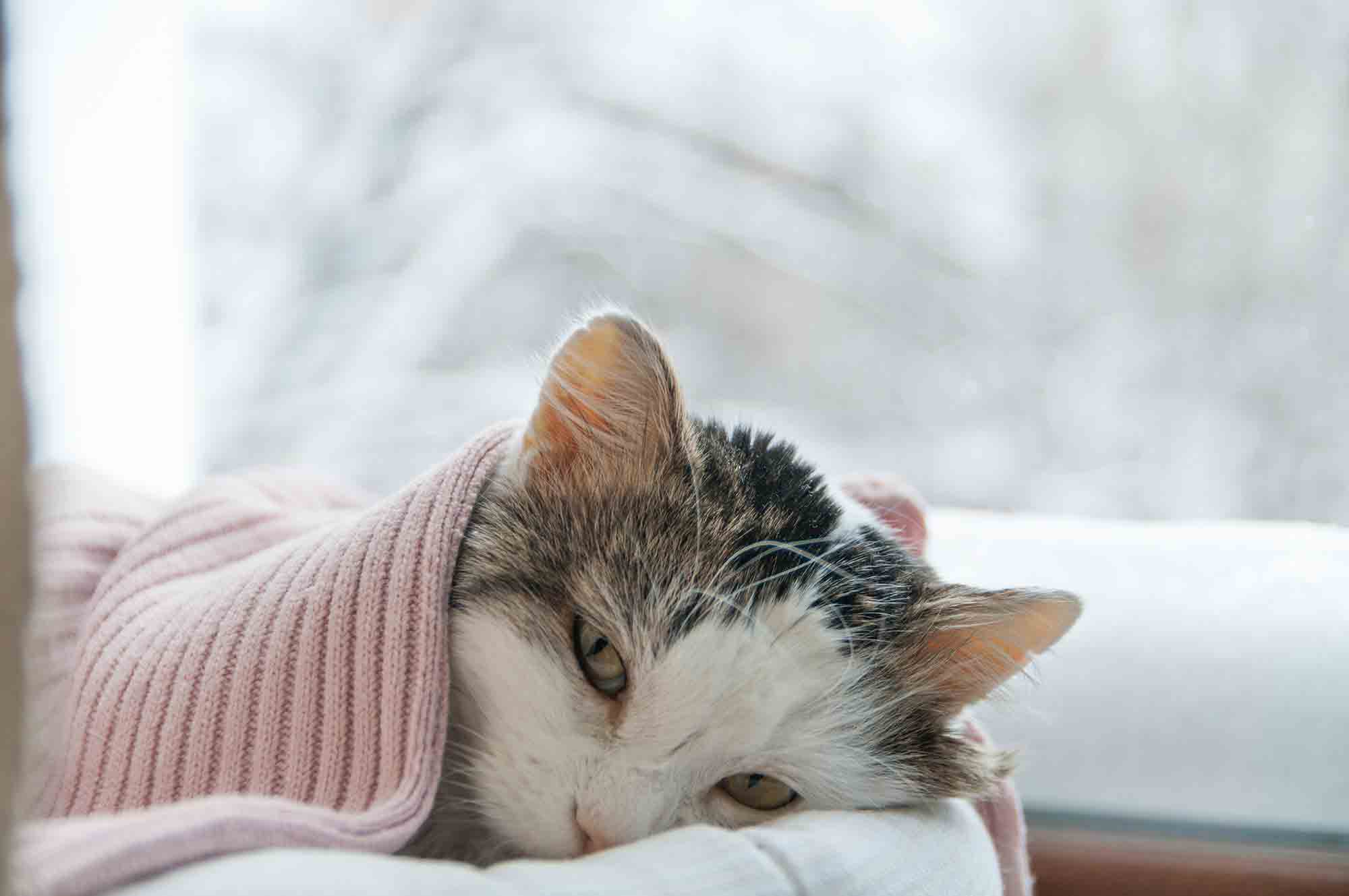 When it comes to diagnosing and treating diseases in our pet patients, there are some that our team at Summeridge Animal Clinic expect a more promising prognosis than others. Sadly, feline infectious peritonitis (FIP) is a disease that we are loathe to meet.
When it comes to diagnosing and treating diseases in our pet patients, there are some that our team at Summeridge Animal Clinic expect a more promising prognosis than others. Sadly, feline infectious peritonitis (FIP) is a disease that we are loathe to meet.
FIP in cats is a serious disease that often eludes diagnosis and is somewhat unpredictable. It is also a disease for which we are lacking effective treatment options.
What FIP Means
Feline infectious peritonitis, otherwise known as FIP, is thankfully a fairly rare disease encountered in veterinary medicine. Even as a certified Cat Friendly Practice, we don’t diagnose it often.
The disease is caused by a mutated version of the feline coronavirus. Many cats are exposed to or even infected with feline coronavirus without developing FIP.
Cats may be exposed to feline coronavirus by oral exposure to feces, or less commonly, through inhalation of the virus. Those affected are typically very young (less than 2 years of age) or very old (10 years of age or older).
At this time, it is unknown what causes the virus to mutate into the more serious form in some animals. We do know that cats in multicat households are at increased risk, and those in cattery or shelter-type environments are at even higher risk.
Cats who are infected with the mutated feline infectious peritonitis virus develop one of two forms of illness:
Wet FIP – Wet, or effusive, FIP in cats results in the collection of fluid within the body. Typically, it manifests as ascites (fluid in the abdomen), but may also fill the chest or the area around the heart. Affected cats have difficulty breathing.
Dry FIP – Dry, or non-effusive, FIP has very little fluid accumulation. In this form of the disease, symptoms result from the effects of the virus on major internal organs, including the kidneys, liver, brain, spinal cord, and eyes. These cats tend to have a longer survival time than those with wet FIP, but eventually succumb due to organ failure.
The symptoms result from the body’s immune reaction to the viral particles within the blood vessels. These cause leakage of fluid and inflammation in the surrounding tissues.
Signs of trouble, especially early on, can be very vague. It is important to call us right away if your cat is acting abnormally or sick in any way.
Diagnosis of the Disease
Diagnosis of FIP in cats can be tricky business. While we may have a suspicion of the disease, making a diagnosis is nearly impossible without biopsy of affected tissues. This is often hard to do aside from a post-mortem examination.
We can test for antibodies against feline coronavirus, but the tests cannot distinguish between normal coronavirus and the mutated form. This means that a positive test only tells us that the cat has been exposed to the virus, but not necessarily that it has FIP.
Often, when we suspect a feline patient may have FIP, we must make a diagnosis by exclusion. This means that we systematically rule out all other possibilities until FIP is the only option left. Researchers continue to develop better ways to diagnose the disease, but we are still mostly in the dark.
Treating FIP in Cats
Even in this modern era of veterinary medicine, we are left with few options when it comes to treating a cat affected by FIP. Without exception, affected patients will succumb to the disease, many sooner than later.
The best we can offer our feline patients is end of life, supportive care by managing fluid accumulation, treating pain, and providing nutritional support. Anti-inflammatory medications, such as steroids, can also be of value, as many of the disease symptoms occur due to the body’s inflammatory response against the virus.
Therapy with antivirals and other supplements seem to hold some promise, but we are still a long way off from utilizing these medications effectively.
If you have a cat-loving household, you likely have nothing to be worried about, particularly if your cats live a sheltered, indoor life. Should your cat become ill and test positive for feline coronavirus, it is likely prudent to quarantine them from other cats.
FIP in cats is a devastating disease that we hope you never encounter. We will continue to watch the research as we try to gain a greater understanding about this virus and the havoc it inflicts on the feline body. Please contact us for additional information or to schedule an appointment.



